Characters We Love To Hate
Captain Ahab. Gollum. Holden Caulfield. Professor Moriarty. Literature is full of characters that we just love to hate. Characters that infuriate us, that cause us to rant and rave, that have us cheering on the opposition even when they are the villains of the story. The types of characters that get under the skin and into the blood, that work their way to your heart with means both mysterious and powerful, making them irresistible along the way. The type of characters that, in the end, we remember long after the story is done.
What is it about such characters that allow us to put aside our initial distaste, be it for their actions or their personalities, and cause us to keep reading? To stay with them, page after page, even when they are not the most likeable people?
In my view, they all have one simple trait that elevates them beyond their essential natures and makes them worthy of our time and attention.
They have, on the whole, something that makes them interesting.
Ahab’s relentless drive elevates him from a simple sea captain with a taste for vengeance. The occasional glimpse of Gollum’s lost “humanity” makes us wonder if he’ll ever come back from the depths to which he’s descended. The question of Caulfield’s sanity keeps us pushing onward, waiting to discover if it’s all just a lie, a cleverly concocted tale to cover up his own culpability. And it is Moriarty’s intelligence that makes us admire him as he continues to outwit the equally intelligent Holmes.
Much of this was on my mind as I began developing the character of Jeremiah Hunt, the hero (or should I say anti-hero?) of my forthcoming novel, Eyes To See. I admit it—when Jeremiah’s encountered for the first time, it’s hard not to think of him as a jerk. A first-class pain-in-the-ass, in fact. He’s rude. He’s petty. He’s mean. He’s completely indifferent to what others think of him or of how his own actions will impact other people in turn.
Yet as the writer, I know he has reason to be.
As the story opens, events in Jeremiah’s life have pushed him to the edge. His daughter Elizabeth disappeared without a trace from his home five years before and in the aftermath he has given up all that has made him who he is. His position as a professor of ancient languages at Harvard and the social status that came along with it. His roles as father and husband. His self-respect. His dignity. Even his sight. He has willingly abandoned it all in his single-minded pursuit of discovering what has happened to his little girl.
In an effort to “see things more clearly,” Jeremiah has given up his ability to see the world around him in the natural state, and has replaced it with something else. Something that, I hope, turns him from someone you might cross the street to avoid into one you’d willing follow on the road to adventure…
…………………………
From the Tor/Forge September newsletter. Sign up to receive our newsletter via email.
…………………………
More from our September newsletter:
- A chance meeting with the Card family leads to new manga series by Jason DeAngelis
- Beasts, Boy Scouts, and a Kitty Named Jacko by Bill Willingham
- Jekyll and Hyde, Now and Forever by Alex Bledsoe

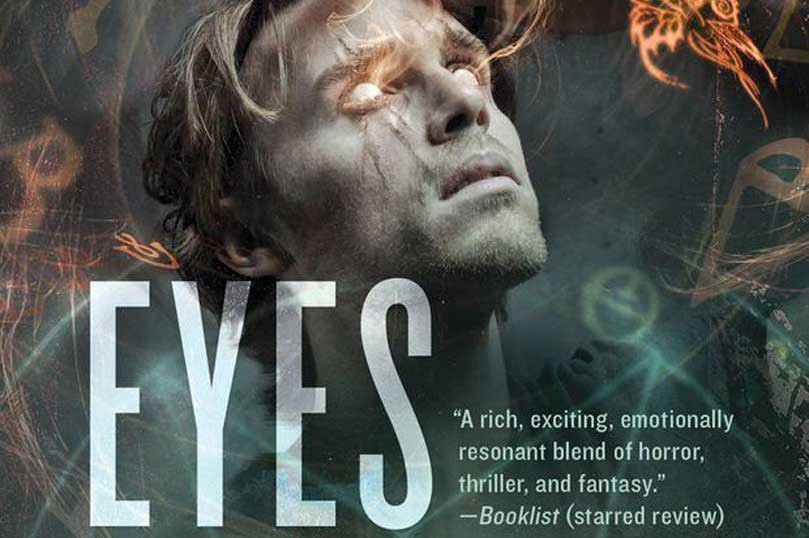


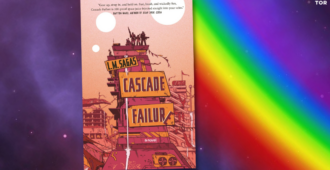
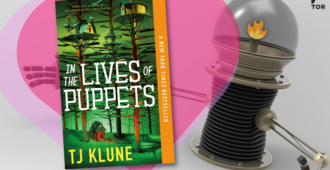
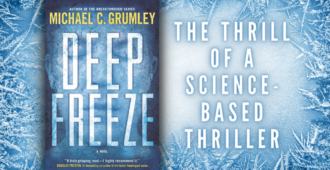
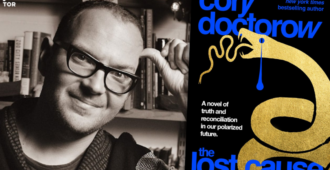
Moriarty has always intrigued me in this way, especially because I was exposed to through various other media (plays, The Next Generation, etc.) before I was a Sherlock Holmes fan. When I got into Holmes and his world, my first response was, “The Big Bad’s a math teacher!”
Yes, he’s terribly intelligent and a match for Holmes in FINA and VALL. But to everyone else in-universe (including the police, who for a time pretty much think Holmes is obsessed with an innocent man), he’s so normal.That’s something I think goes missing in a lot of adaptations; people are so eager to use Moriarty that they forget he’s somewhat more than a generic supervillain.
Having just finished Johnathon Strange and Mr. Norrel, I can certainly agree with a lot of this. Two protagonists that are flawed in very different ways, but who are also very admirable in many ways. But, as pointed out, are both very interesting people.